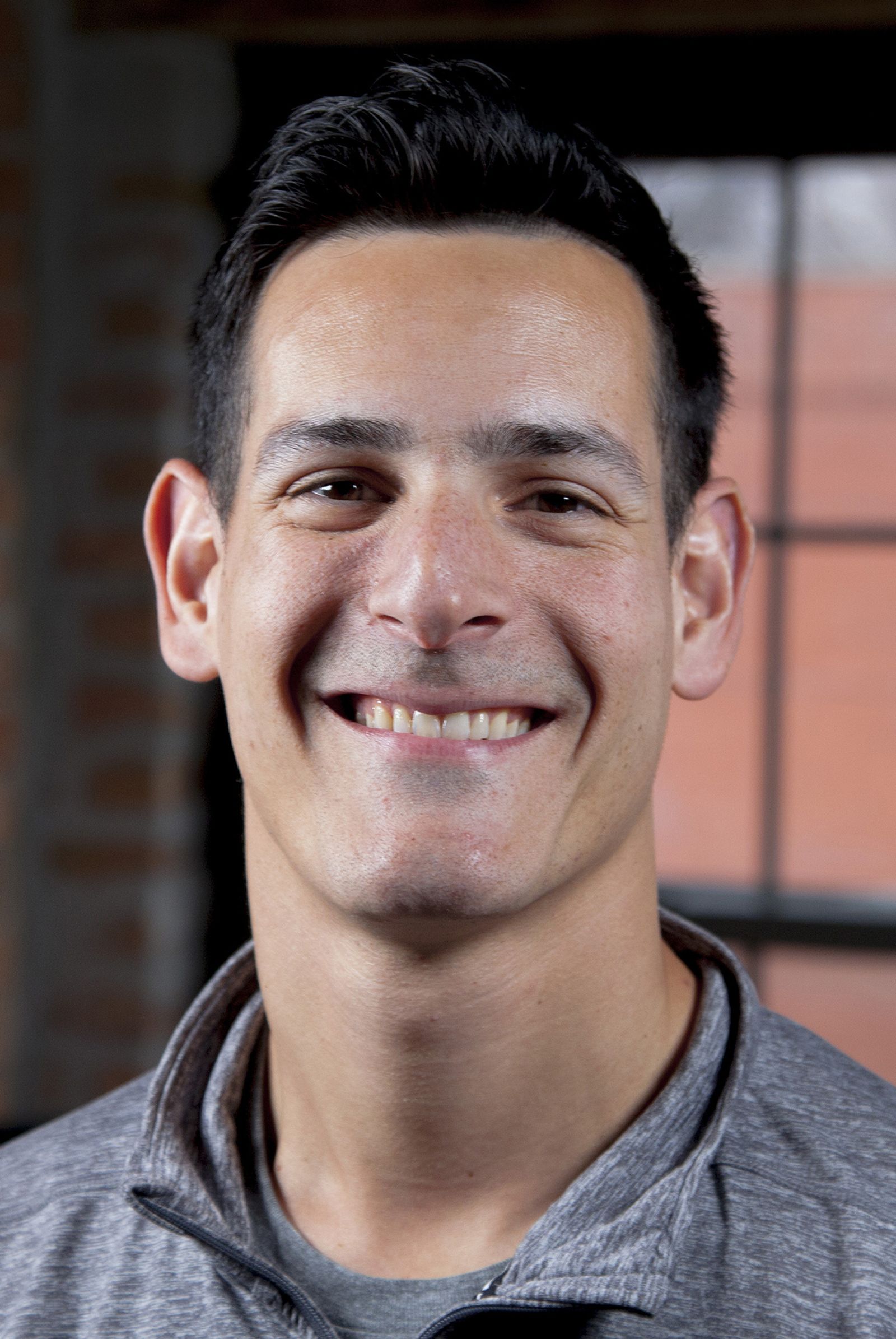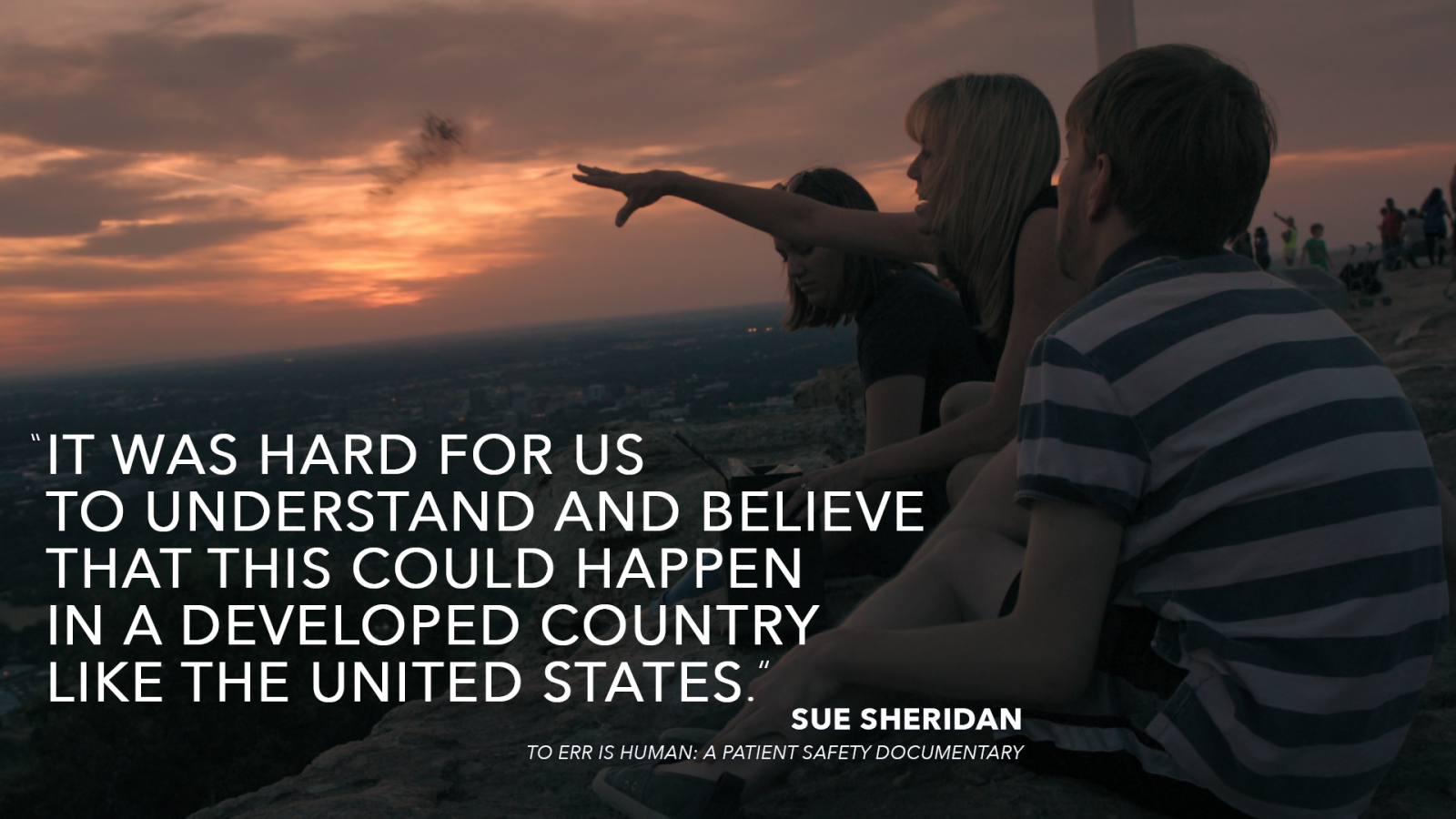For this young filmmaker, patient safety runs in the family

Mike Eisenberg is director of "To Err Is Human," a documentary film about 20+ years of efforts to solve the vexing problems of patient safety. In 2015, he and his partners at Tall Tale Productions were considering topics for future projects when news about the possible defunding of the federal Agency for Healthcare Research and Quality (AHRQ) caught Mike’s attention. His father, John M. Eisenberg, M.D., was director of AHRQ until shortly before his death in 2002 from brain cancer, when Mike was 17. Dr. Eisenberg remains an inspiration today. Each year, individuals and organizations receive Eisenberg Awards for exemplary work in patient safety and health care quality.
Mike Eisenberg has been traveling the country screening the film since it was released in early 2018. The film is now available through Amazon and other retailers. Eisenberg talked with the Betsy Lehman Center recently about his experience as a filmmaker and son.

The Betsy Lehman Center: Last year, you talked primarily with health care professionals at screenings. Now that the film is widely available, what are you hearing from the public about patient safety?
Mike Eisenberg: The general public seems to quickly understand the urgency of these issues, without feeling overwhelmed or terrified. There is a sense of engagement that follows the film, and even people who don’t work in patient safety every day are thinking differently when they visit a hospital or health care setting.
Within health care, I see an incredible movement underway. I’ve heard endless stories of hospitals implementing new ideas to help prevent harm from reaching patients. When we started production on this documentary, we weren’t sure how the health care community would receive it. But by focusing on solutions and progress, the film seems to have buttressed thousands of dedicated people working hard to usher in a new age of safety. The most impressive part of touring the country has been interacting with medical students, who are desperate to learn how they can be part of change.
We occasionally hear that somebody doesn’t like the numbers surrounding medical error research, but the conversation tends to end there. We’re more interested in engaging with people focused on solutions and thinking positively about how to improve the reliability of health care than on those who discredit attempts to raise awareness because there is not yet consensus on how widespread the harm has become.
The Betsy Lehman Center: Your father passed away just two years after the Institute of Medicine published the report for which the film is named. A number of the experts featured in the film have been working on patient safety since well before that report was released. Do you sense their attitudes or the movement itself have changed over the years? Are we making progress?
Mike Eisenberg: I think the biggest change is their sense of tangible progress. Ten years ago I don’t think we saw as many actual solutions being utilized across the country. Now it’s unthinkable for a hospital not to have some kind of patient safety measures in place. The experts are all optimistic about where things are going and they have a sense of urgency that it isn’t yet where it needs to be. There is no question that progress has been made at an exponential rate over the last 15 to 20 years.

The Betsy Lehman Center: Sue Sheridan and her family’s devastating experience with preventable harm are an important story line in the film. How did you come to focus on their story?
Mike Eisenberg: At first we wanted to highlight six or more stories of harm reaching the patient. But we felt it would be disingenuous to their stories. There is so much more to each of them than just the headline or the event itself. When we reached out to Sue about filming her story, she told me that my father was the first person who gave her a platform to share her story, in 2000 at a national summit on patient safety. I knew we had to tell her story, and as we filmed her and met her children, Cal and Mackenzie, it was clear this family was special. Every day working with them was inspiring. They demonstrate what people are capable of when they rise above tragedy and turn it into empowerment. They were so gracious with their lives and allowed us to film more than just interviews. It paints a full picture of living with these kinds of experiences from the patient perspective.
The Betsy Lehman Center: What have you learned about your father in the process of directing and screening the film?
Mike Eisenberg: I knew my father made a tremendous impact on the health care community, but no idea how widespread it was. We’ve traveled all over the country, and no matter where we go, there’s somebody with a story. It’s been an incredible opportunity to reconnect with him in a way I’m sure not even he would expect. It would be something to share a conversation with him about patient safety efforts today now that I’ve become so engaged with that world. But I feel like I’m reliving a lot of his passion through this film, and hopefully expanding upon the legacy he left for us all.
The Betsy Lehman Center: Has your work on this film changed the way you approach your own health care?
Mike Eisenberg: I’ve always been an informed, but passive patient. I see everything now. I see the sinks. I see the signage. I see the EHRs. It all means something to me now. I think the film has made me a better advocate for family, more than anything else. Since finishing To Err Is Human, I’ve had family members go in for surgery. I feel empowered with knowledge to tell them what to look for and when to speak up. A family member recently spoke up when she was getting an antibiotic pre-surgery and it wasn’t the same one she was told she’d receive. When she said something, the medical team doubted her. But they double-checked, and she was right. She didn’t need to know every letter of the complicated medication name, but she knew it wasn’t the right one. I think that’s the biggest takeaway. Patients don’t need to become medical professionals overnight. They just need to be aware that their attention is needed and vital to the care they expect.